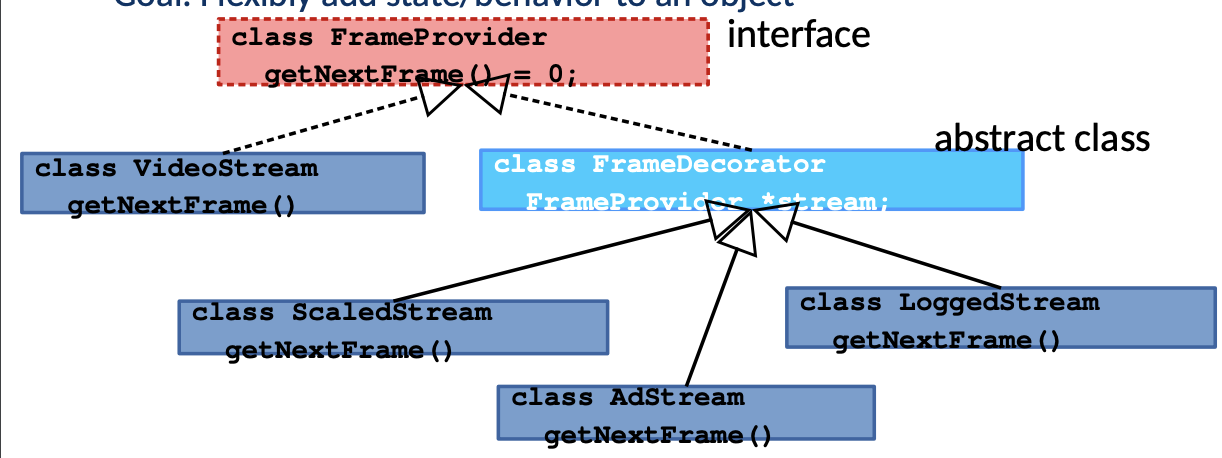background
complexity
- has many forms
- one broad notion - coupling
- understood without others
- changed without changing others
intro
design patterns - reusable solutions and metaphor to address problems
provide
- common language - easy shorthand
- archetypes - with tradeoffs
note:
- not taken as-is directly
benefits
- clear formulations of problem to attack
- enable efficient communication
- understand pros and cons
- provide anchor points to explore
risks
- solutions built around design patterns, not informed
- emergent tradeoffs hidden by adopting pattern too early
puzzle pieces
design patterns largely built around exploiting
- composition
- use other class in variables
- polymorphism
- common interface for many types
3 classical categories
- creational - support creation of objects
- structural - organize object to create new behaviour
- behavioural - communication between entities
deriving designs and recognizing patterns
problem - flexibly create instance of object
creational pattern - prototype
Animal animal{"Zebra", RunPolicy, WinnyPolicy};
class ThingMaker {
Animal toCopy;
public:
Animal makeOne();
} maker;
Animal animal = maker.makeOne();pros:
- user defined object easier
cons:
- managing cloning become critical
- inheritance based
problem - adding behaviour/ state
structural pattern - decorator

shared API - FrameProvider Core - VideoStream Configurable wrappers - others
goal
- decouple addition of behaviour from VideoStream class
- inheritance of implementation is strongly coupling
benefits
- avoid class explosion
- works when inheritance on core is prohibited
- can dynamically add/remove behavior
cons
- address no object identity
- deep check to solve
- indirection is form of complexity
- debugging more complex
problem - separate caller and callee
behavioural pattern - command
want to decouple actions to be taken from call sites
auto result = foo(x, y, z)
// better
auto result = worker.doWork();
class Work {
virtual Result doWork() = 0;
}
class WorkKind1 : public work {
Result doWork() override {...}
}class Command {
public:
virtual void execute() = 0;
}benefits
- decouples request/ behavior from invoker
- invoker decides when to invoke without caring what
- parametizable via constructor
- command sequences batchable
issues
- how much state it holds
- perform undo/ redo
- how to batch commands
- how temporal coupling affect operation logic
big picture
nothing special about design patterns
- API you want
- hide design decisions to get API
design patterns
- provide common language
- have trade offs and solve
- next learn state, strategy and visitor